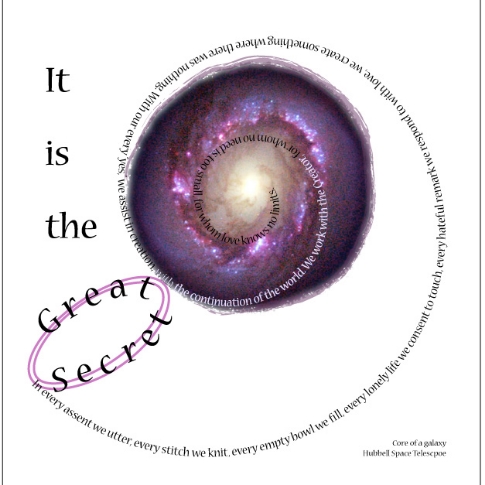Put it down to my tender Jewish heart, but I’m glad to hear that Mel Gibson’s stricken career, like the man said in Holy Grail, isn’t quite dead, and may even pull through. The Beaver, Gibson’s new film, in which he stars opposite Jodie Foster, opened today to mixed, but mainly positive, reviews. Many of the sympathetic critics think Gibson is the best thing about it. In Rolling Stone, Peter Travers gives him credit for “a high-wire performance of the highest caliber.” Mick La Salle of the San Francisco Chronicle writes: “[Gibson] gives a performance of such pain and insight that he makes the case for himself as an actor again, not a public spectacle.”
It may help that Gibson’s playing a character just as crazy as he is. Having suffered a nervous breakdown, Walter, a CEO, develops a second personality, which he channels through a beaver hand puppet. To Andrew O’Hehir, this looks like “a psychodrama that’s part therapy and part self-criticism. Was it Mel who made those terrible phone calls, or was it the puppet?” In other words, the actor’s relationship to the character is a bit like the character’s relationship to the puppet. In both cases, the first helps the second to explain himself, to beg understanding.
Really, I can’t put my finger on why I’m feeling so sentimental about Mel Gibson — not after his anti-Semitic tantrum, his racist tantrum, his domestic- partner abuse, his…you name it. His films never did all that much for me. I’m too big a history geek not to have hooted at the sight of William Wallace in a kilt, or the thought of him siring Edward III. I liked the idea of Passion more than I liked the film itself, and I knew I had no hope of sitting through Apocalypto. It just sounded too…apocalyptic.
I suppose I could tell that his vision was unique, and his talents were rare. Joe Queenan, one of the writers I’d most like to be when I grow up, pleads Gibson’s cause. That he does so somewhat grudgingly makes him all the more credible.
Gibson has also on occasion been willing to put himself at risk – as he did in Hamlet, in which he joined a long list of actors who were either too old to play the part (Laurence Olivier, Kenneth Branagh), or too obviously manipulative (Jude Law) to be the callow, indecisive Dane. If it is true that quite early in his career he came to rely on that impish eye-rolling, or keeping his mouth slightly ajar while conversing with others, or pulling his eyes away from other actors and then suddenly firing a sideways glance back at them, these tics were no more annoying than Eastwood’s trademark squint or Cruise’s high-beam smile. Gibson, like McQueen, is one of those actors who made his debut on screen equipped with a full complement of acting chops, and pretty much stayed the way he was for the next 30 years. Movie stars more than actors, these types of performers don’t get any better, and they don’t get any worse. If it worked at the beginning, it will work at the end.
Some, perhaps most, actors wear out their welcome on screen. But that did not happen with Gibson; he was as good in last year’s generic Edge of Darkness as he was in Gallipoli and Mad Max. Unlike Robert De Niro and Al Pacino, who deliver one listless, fatigued, phoned-in performance after another at this stage in their careers, Gibson has always gone about his job in a professional fashion. He may be cynical in real life, but he is not cynical on screen.
Gibson is also a very fine, and in many ways daring director. Braveheart, a throwback film, is the kind of lusty historical epic that evokes Ben-Hur and Doctor Zhivago. The same is true of The Patriot and of his very strange, very entertaining Apocalypto, which contains no English dialogue. Indeed, one of the most troubling things about The Passion of the Christ, a film whose cavalier antisemitism makes it seem like something written in the Middle Ages by someone whose dad doesn’t care much for Jews, is how well-made a film it is. In undertaking this benighted project, Gibson set out to show that the last 18 hours in the life of Jesus Christ were nauseatingly unpleasant. He most certainly succeeded.
Queenan’s a much better critic than I’ll ever be, but there’s one redeeming quality of Gibson’s he misses. Though probably no less a monster of ego than any other titan of the entertainment industry, Gibson has always known, even in better times, when to lay aside his vanity for the good of the project.
The last Gibson film I really enjoyed was The Patriot. (I’ve always been a Revolutionary War buff, and at the time of the film’s release was trying to scratch out a novel on the Carolinas campaign.) Many things about the script made me groan — to pick just one, the disclaimer that Gibson’s character had freed all his slaves felt both manipulative and false to history. But it also impressed me that Gibson cast Heath Ledger, who at that point in their lives was conventionally better-looking, to play his son. To play the bad guy, he chose Jason Isaacs, a man with an arguably stronger screen presence. Clearly, looking good was not among Gibson’s priorities.
Better, he didn’t insist on playing Jesus.
When I went to see Passion, I was primed to find anti-Semitism, but I didn’t. I couldn’t. Not so much as a subtext or a dog-whistle. The Sanhedrin looked more like actual people than like embodiments of any stereotype. The actor who played Caiaphas, Mattia Sbragia, was Italian, and — it seemed to me — infused his performance with a certain lovable comic-opera flair. To play the Blessed Mother Gibson cast Maia Morgenstern — yes, Morgenstern, as in Rhoda Morgenstern, Mary Richards’ sidekick. If that’s cynical tokenism, I’ll take it.
Besides, there has always seemed to me something very gracious, very democratic, in a society that offers scoundrels and maladjusted characters a narrow but real road to obscene wealth and cultural influence. Like Powerball or a monarchy where sovereigns occasionally grant peerages to their illicit lovers, it teaches the lesson that not only can you make it, someone much worse than you can make it — so hang in there.
— Max Lindenman











